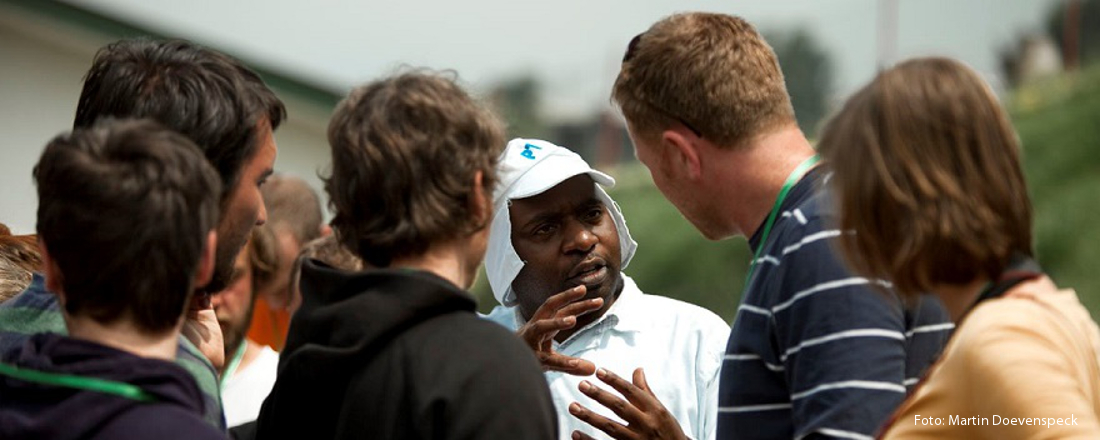Programme Overview
Understanding development processes in times of global change
Processes of development, change, and globalization in Latin America, Asia, and Africa are playing an increasingly important global role in this day and age. The interdisciplinary master’s programme “Development Studies” addresses the causes, conditions, and consequences of such processes. Here you have the chance to look at “development” from different perspectives, to link methodological and theoretical approaches, and to detect connections between social, political, and spatial conditions. During your studies, you will gain the ability to analyse development problems and processes of global and local change, to discuss them in consideration of theories from the social sciences and economics, and to apply them in practice as part of a project-focussed unit of study. Development Studies is a bilingual programme (German and English) with an English track that can be completed as a full-time or a part-time student.
Master complexity through interdisciplinarity
This interdisciplinary Master of Arts provides a scientifically grounded yet practice-oriented approach to the chances, challenges, and contradictions in current development processes. The programme of study combines courses in development sociology and politics, geography, and economics. On this basis, students acquire subject-specific as well as interdisciplinary and practical skills. The University of Bayreuth’s research focus on Africa and its diverse research on the Global South give you access to extensive expertise. You benefit from the close integration of the departments involved, while having the freedom to choose your own area of emphasis to be pursued in development sociology or politics, geography, or economics. Thanks to the programme’s interdisciplinary approach, you will be alert and open to the theoretical and methodological diversity that you will encounter again and again, even in practical work in the field of development. This will in turn enable you to better understand and assess complex development processes.
Module Overview
The modules include courses with a fixed content and seminars with variable specific topics. Students chose one out of three individual focuses. The programme includes activities that represent a total of 120 ECTS. Admissions can be subject to catching up BA courses representing a workload of not more than 30 ECTS. See the Module Handbook and Study Scheme for details.
- Foundations (46 ECTS)Hide
-
- Introduction to Development Studies
- Regional Geography
- Macroeconomics
- Qualitative Methods for the Social Sciences
- Contemporary Theoretical Approaches to Global Development
Advanced Foundations
- Social and Political Processes in Global Development
- Geographies of Environment and Development
- Economics, Governance, and Development
- Individual Focus on Advanced Global Sociology and Politics (18 ECTS)Hide
-
- Actors and Policies in Global Development
- Global Entaglements
- Social and Political Processes in Africa
- Individual Focus on Advanced Global Geography (18 ECTS)Hide
-
- Spatial Perspective on Socio-Economic Development Processes
- Development Cooperation/Development Planning
- Political Ecology/Economy of Global Change
- Spatial Perspective on Socio-Economic Development Processes
- Individual Focus on Advanced International Economics (18 ECTS)Hide
-
- Economic Progress and Institutional Change
- Economic Development
- Topics in Economics and Governance
- Economic Progress and Institutional Change
- Individual Development and Practical Experience (28 ECTS)Hide
-
- Individual Deepening or Catching-up
- Professional Intership or Research Internship
- Individual Deepening or Catching-up
- Master Thesis (26 ECTS)Hide
-
- Master Research Seminar
- Master's Thesis
- Master Research Seminar
Departments Involved
| Development Economics |
| Development Geography |
| Development Sociology |
| Development Policy (Political Science) |
| Institutional Economics |
| Political Geography |
| Social Geography |
| Economic Geography |
In addition to choice of courses offered by the departments involved, courses of many other units are open for students of Development Studies.

